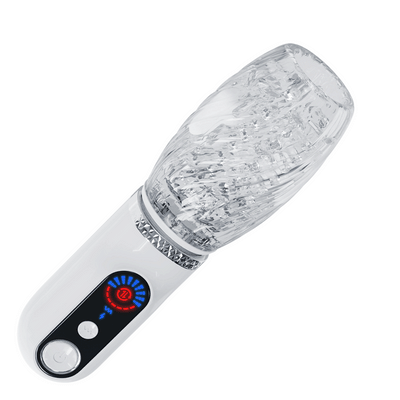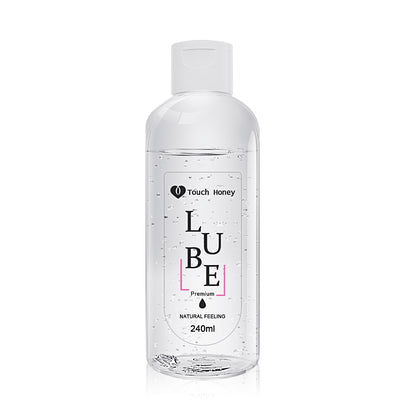Circumcision and sex | Does it affect having a circumcised penis?
The debate over circumcised versus uncircumcised penises is a discussion that could rival the age-old argument of whether a potato omelette should have onions or not. Well, I mean, it might just be me, but it seems like this topic doesn't get as much attention because, well, we're dealing with the nether regions, and we all know how hush-hush that can be. If it weren't for that, I'm pretty sure it would be right up there on the debate scale for a few good reasons: it's all about penises (a perennial favorite topic for roughly half the population, specifically those who happen to possess one), it's a matter of health and sexuality. And if that wasn't intriguing enough, it turns out that by current estimates, approximately 30% of the world's penises are circumcised. So, let's delve into the fascinating realm of those roughly 670 million phalluses that roam the Earth au naturel.
What is circumcision?
Circumcision is a procedure involving the removal of the foreskin, the skin that covers the glans of the penis. There are both health-related and cultural reasons for performing circumcision.
Health Reasons: Circumcision is typically recommended when the foreskin is not sufficiently flexible and cannot retract properly, potentially causing discomfort or pain. This condition is known as phimosis and is relatively common among male infants. Fortunately, in many cases, phimosis resolves naturally as the child grows, and by the age of 17, it affects only about 2% of young individuals. However, adult-onset phimosis can also occur due to factors like skin atrophy or certain medical conditions such as diabetes. If difficulties with urination or erections are observed, it's advisable to consult a specialist who can assess the situation and, if necessary, perform circumcision. This surgical procedure can be carried out at any age to address these issues.
Cultural Reasons: Circumcision is also performed for cultural and religious reasons. In the Jewish tradition, male infants are typically circumcised shortly after birth. Similarly, in Islam, circumcision is practiced, although there is no specific age for it, and it is generally recommended at an early stage. In the Christian faith, circumcision was historically practiced but is less common today, except in certain sects such as Coptic Christianity in Egypt and Ethiopian Orthodox Christianity. Beyond religious contexts, some ethnic groups in regions like Africa and Asia view circumcision as a rite of passage into adulthood.
Circumcision, therefore, serves both as a medical intervention to address certain conditions and as a cultural or religious practice in various parts of the world.
Differences between circumcized penis or not
Setting aside technical explanations, the fundamental distinction between a circumcised penis and an uncircumcised one is quite simple: a circumcised penis always has the glans (the head of the penis) exposed, whether it's in an erect or flaccid state.
How does the circumcized penis affect sex?
We've arrived at the very heart of the discussion this article started. When it comes to health reasons, there's little room for debate. If a medical professional recommends circumcision because the foreskin isn't flexible enough and doesn't retract properly, it's generally the best course of action. However, some people have concerns about potential sensitivity loss in the glans and its impact on sexual relationships.
First and foremost, the opposite is often the case. Neglecting necessary surgery for phimosis can indeed have adverse effects on sexual experiences. When the foreskin doesn't retract correctly during an erection, it can lead to discomfort or even pain. In such situations, the penis may struggle to maintain its full rigidity, and this discomfort can lead to distractions in both body and mind. Ultimately, this can diminish overall pleasure, whether you're engaging in solo activities like masturbation or sharing the experience with a partner. So, addressing phimosis surgically when it's medically required appears to be a sensible choice, providing relief from potential discomfort and enhancing sexual experiences.
Now, let's delve into the question of whether there's a loss of sensitivity in the glans when it remains permanently exposed after circumcision. The removal of the foreskin does result in some changes to the mucosa that covers the glans, making it slightly more resilient. While studies don't unanimously agree on whether there's a significant loss of sensitivity, some individuals do report a slight decrease in sensitivity to friction.
However, this doesn't necessarily translate into less pleasurable sexual experiences. In fact, for some, it's quite the opposite. Some men, prior to circumcision, may have considered the area too hypersensitive, so a reduction in sensation can be seen as a positive change for them. Additionally, it's important to remember that pleasure in sexual encounters isn't solely dependent on what the penis feels. Our bodies are equipped with numerous erogenous zones, and the most significant sexual organ is arguably the brain.
As for the impact on one's partner, there are generally no significant differences when it comes to sexual experiences with a person who has a circumcised or uncircumcised penis. Sensations and pleasure are not substantially affected by this factor. Sexual enjoyment is influenced by a complex interplay of physical and emotional elements, and the absence or presence of a foreskin is just one of many variables at play.
Benefits of the circumcized penis
- Enhanced Hygiene: One notable advantage of a circumcised penis is improved hygiene. Without the foreskin, cleaning becomes much simpler. Otherwise, you'd need to retract the skin to clean underneath, where a whitish and sometimes unpleasant-smelling substance known as smegma can accumulate. With circumcision, this issue is effectively eliminated.
- Reduced Risk of Certain Infections: Various studies have indicated that circumcision can reduce the transmission of sexually transmitted infections, including HIV and HPV. This protective effect is attributed to the somewhat more resilient covering of the glans after circumcision. However, it's essential to note that circumcision is not a foolproof barrier, and safe sexual practices, such as condom use, are still crucial.
- Improved Ejaculation Control: Some individuals find that they can achieve greater control over ejaculation due to the slight reduction in sensitivity post-circumcision. This can lead to longer-lasting sexual encounters and increased satisfaction for both partners.
- Oral Sex Made Easier: The absence of a foreskin can make oral stimulation of the glans more straightforward and direct, potentially enhancing the experience for both partners.
- Aesthetic Preferences: While it's a matter of personal preference, some people consider a circumcised penis more aesthetically pleasing. As the saying goes, "to each their own."
It's important to remember that the decision to undergo circumcision is a personal one, and these potential benefits should be weighed against individual needs, preferences, and medical advice.
Recommendations, precautions and risks of circumcision
At this stage, the primary recommendation I can offer is simple: if your doctor advises circumcision to address phimosis, it's generally a good idea to follow their guidance. This procedure is considered minor surgery, and you may need a few weeks of rest before resuming your sexual activities, including masturbation. Upon returning to intimate encounters, you might notice some differences in sensation, such as heightened sensitivity, which tends to gradually diminish over the following weeks. Another noteworthy change is that any concerns you may have had regarding this matter often lessen, ultimately leading to a more satisfying sexual experience.
If you're on the brink of surgery, it's essential to exercise caution during any activities that involve the retraction of the skin, particularly during penetration, and avoid sudden movements. Use common sense, and if any discomfort arises, don't hesitate to pause.
On the other hand, if you've already undergone circumcision, there's no need to dwell on the matter. You'll find that it has its advantages, and most importantly, it doesn't adversely affect your pleasure or that of your partner.
As for sexual positions, there are no specific recommendations for this circumstance. The choice of positions depends on personal preferences and other factors, such as the shape of the penis, your desire for deeper penetration, or the need to stimulate the clitoris. The presence or absence of a foreskin doesn't significantly impact this aspect.
When it comes to oral sex or masturbation, there are no specific recommendations. Feel free to use the techniques that you enjoy the most. So, without any more delay, go ahead and enjoy!










Leave a comment